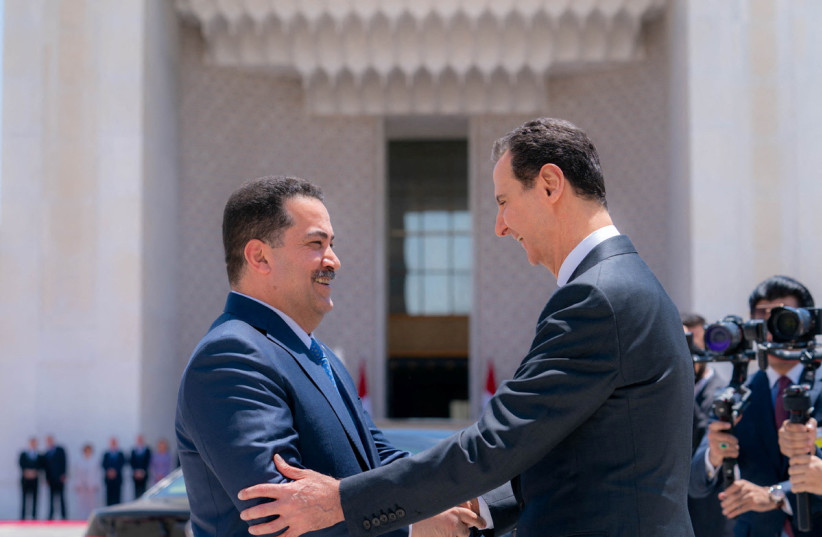The Syrian regime is seeking to shore up support in the region as it faces a major advance of opposition groups in northern Syria. The regime lost the northern city of Aleppo over the weekend and is at risk of losing Hama, another key city.
The regime basically controls western Syria today, with eastern Syria controlled by the US-backed Syrian Democratic Forces and northern Syria controlled by Turkey. Idlib is controlled by Hayat Tahrir al-Sham, the opposition group that has led the attack on Aleppo.
Syrian support
The Syrian regime reached out to Russia, Iran, Iraq, and the UAE in the last several days to gather support.
Syrian regime leader Bashar Assad was in Russia when the HTS offensive began, and Iran’s foreign minister was expected in Syria on Sunday. Assad has also called the Iraqi leader and the UAE.
“Syrian President Bashar al-Assad and Iraqi Prime Minister Mohammed Shia’ Al Sudani have discussed the latest developments in Syria and the West Asia region,” Iranian media reported after the men spoke on Saturday night.
“Assad and Al Sudani also discussed Damascus-Baghdad ties, including cooperation on fighting terrorism, with the Iraqi premier stressing that his country is prepared to support Syria in fighting terror groups.

“Al Sudani also said that Iraq is committed to supporting Syria’s sovereignty and territorial integrity. The Syrian army has been engaged in fighting terrorist groups who launched a surprise attack on the northern city of Aleppo on Wednesday in violation of a 2020 ceasefire agreement,” Iranian state media noted.
After the call with the Iraqis, Assad spoke with the UAE’s Sheikh Mohammed bin Zayed Al Nahyan.
“President al-Assad stressed during the call that Syria will continue to defend its stability and territorial integrity in the face of all terrorists and their supporters and that it is capable, with the help of its allies and friends, of defeating and eliminating them, no matter how intense their terrorist attacks are,” Assad’s office said in a statement on social media.
UAE's solidarity with Syria
“During the call, Sheikh Mohammed bin Zayed affirmed his country’s support for the Syrian state and its fight against terrorism and the establishment of its sovereignty, territorial integrity, and stability.”
UAE state media WAM noted that “President His Highness Sheikh Mohamed bin Zayed Al Nahyan held a phone call today with His Excellency Bashar Al-Assad, President of the Syrian Arab Republic. During the call, His Highness and President Bashar Al-Assad discussed the latest developments in Syria, as well as various issues and topics of mutual interest.”
Furthermore, the UAE’s President “emphasized the UAE’s solidarity with Syria and its support for combating terrorism and extremism. He also reaffirmed the UAE’s stance supporting all efforts aimed at achieving a peaceful resolution to the Syrian crisis in a manner that meets the aspirations of the Syrian people for stability and development while preserving Syria’s unity and sovereignty over its entire territories.”
This is significant because it reveals who the Syrian regime trusts for support. The regime has reconciled with the Gulf states in recent years, and it sought to return to the Arab League, with Egypt acting as one of the first Arab states to seek to bring Assad back into the fold after the Syrian civil war began in 2011 and Assad became persona non-grata in the region.
After Egypt moved to increase ties, more countries opened up to Assad. They began to think that the chaos of the Syrian civil war was more of a danger than the regime.
They embraced what they saw as “stability” in Damascus. Now that Damascus has lost Aleppo, it is clear that the regime is unstable. However, the regime will need all the help it can get from Iraq and the Gulf, as well as its allies in Iran and Russia.
